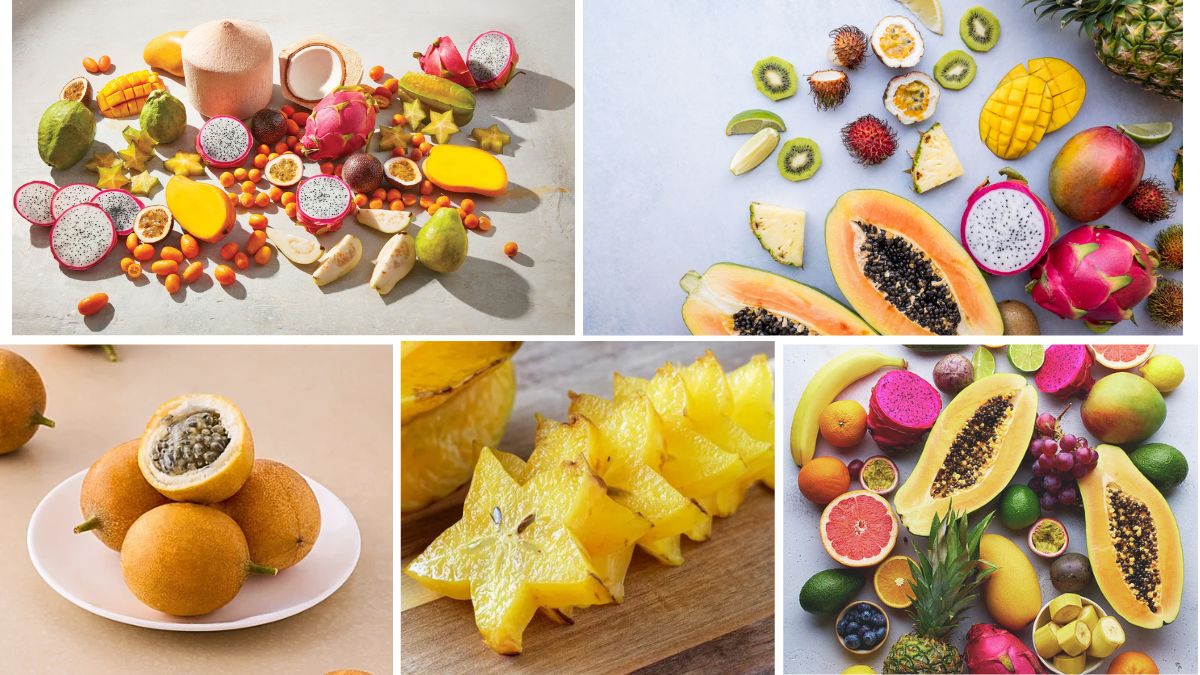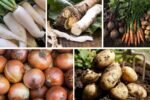In the fast-evolving global food trade, tropical fruits are increasingly making their mark in digital marketplaces. These vibrant, flavorful, and nutrient-rich fruits like mangoes, pineapples, bananas, avocados, dragon fruit, papayas, lychees, and guavas have become top-selling commodities not just in physical markets, but also online. With the rise of e-commerce, health-conscious consumers, and international logistics capabilities, the digital fruit trade is booming — and tropical fruits are leading the charge.
This article explores the top online markets for tropical fruits, examining what makes them successful, what platforms dominate, and how producers can capitalize on this growing trend.
1. The Rise of Online Fruit Commerce
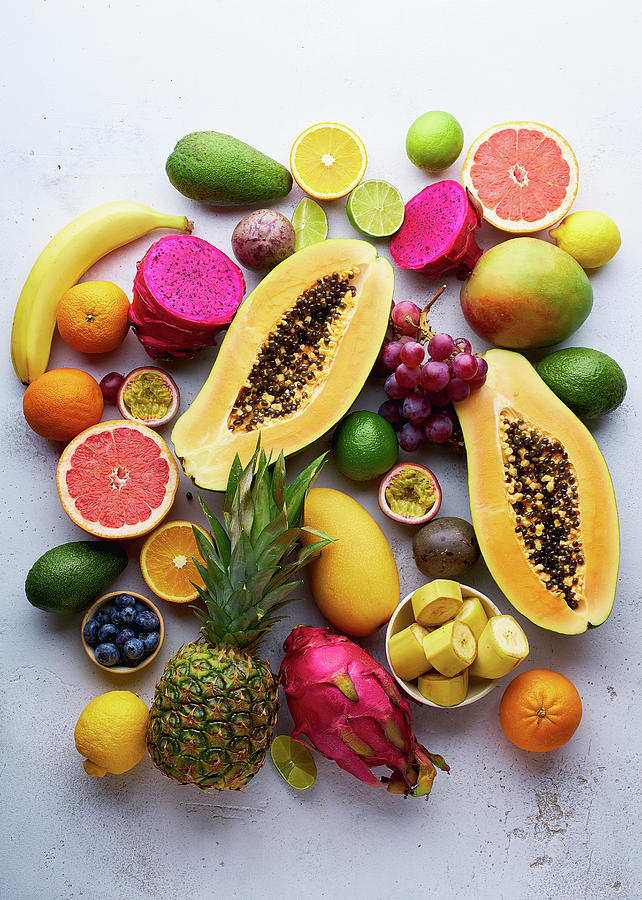
Tropical fruits have traditionally been sold in wholesale markets and retail chains, but digital disruption has opened new avenues:
- E-commerce platforms allow direct-to-consumer sales.
- Subscription fruit boxes are delivering exotic fruits monthly to global customers.
- B2B digital marketplaces connect producers directly with importers and restaurants.
According to a 2025 global market study by AgriTrade Insights, online fresh produce sales — including tropical fruits — have grown by 27% year-on-year since 2020, with expectations to cross $35 billion globally by 2026.
2. Key Drivers for Online Tropical Fruit Sales
Several trends have contributed to the popularity of tropical fruits in online markets:
a. Health and Wellness Boom
Consumers are prioritizing vitamin-rich, fiber-loaded fruits like mangoes, avocados, and papayas. Their immunity-boosting properties have made them pandemic-era favorites.
b. Digital Accessibility
Smartphones, improved payment gateways, and cold-chain logistics have enabled even remote farmers to reach urban or international consumers.
c. Sustainability and Organic Labels
Shoppers want ethically grown and organic-certified produce. Many tropical fruit farms are aligning with global organic certifications, giving them a competitive edge online.
3. Top Global Online Markets for Tropical Fruits
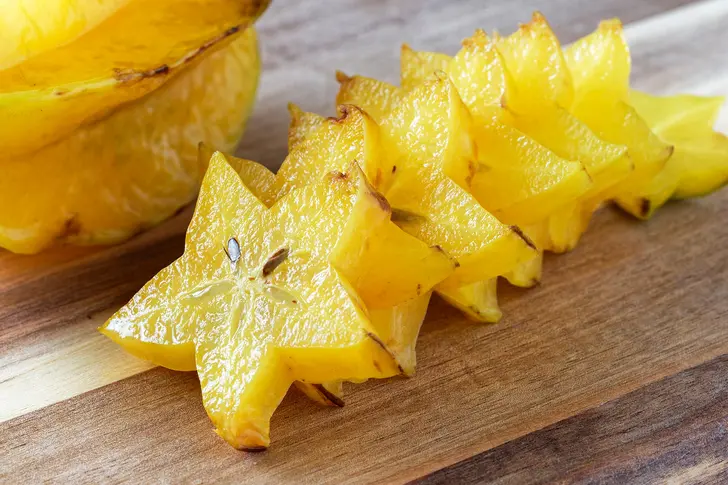
a. United States
Amazon Fresh, Instacart, Misfits Market, and Whole Foods Online are popular outlets. Mangoes, avocados, and pineapples are the most demanded.
- Consumer trend: There’s a growing preference for “exotic fruits of the month” boxes.
- Wholesale/B2B: Websites like ProducePay, FreshDirect, and BlueCart connect large buyers with exporters from India, Mexico, Peru, and the Philippines.
b. European Union
Germany, France, and the Netherlands dominate online tropical fruit consumption in the EU. Platforms such as Allegro, FrischeParadies, and La Ruche qui dit Oui offer niche exotic fruit selections.
- EU buyers emphasize fair trade and low-carbon footprint logistics.
- Organic tropical fruits (especially mangoes and passion fruits) enjoy a price premium.
c. Middle East (UAE & Saudi Arabia)
Online grocery platforms such as Carrefour UAE, Lulu Hypermarket, and Trolley.ae are key players.
- Consumers prefer pre-cut and ready-to-eat options.
- There is high demand during Ramadan and festive seasons for premium packaging and imported tropical fruits.
d. Southeast Asia
In countries like Singapore, Malaysia, and Thailand, local e-commerce players such as RedMart, HappyFresh, and Jaya Grocer Online promote both domestic and imported tropical fruits.
- There’s growing cross-border trade with Indonesia and Vietnam for fruits like rambutan, durian, and dragon fruit.
- Cold-chain enabled deliveries make it possible to sell even fragile fruits like mangosteen online.
e. East Asia (China, Japan, South Korea)
China’s JD.com, Alibaba’s Freshhippo, and Taobao are leading tropical fruit vendors, importing massive volumes of durian, avocado, and papaya.
- Live streaming fruit auctions are now common in China.
- Japan prefers aesthetic perfection and gift-quality fruits — sellers need to focus on high-grade presentation.
4. Online Marketplaces for Exporters

Besides consumer-facing platforms, several B2B online marketplaces are crucial for tropical fruit exporters:
| Marketplace | Region | Focus |
|---|---|---|
| Agro-Market24 | Global | Bulk tropical fruit trade |
| Tradekey | Global | Fruits from Africa, Asia |
| Alibaba | Global | Avocados, mangoes, guava |
| FruitBuys Vietnam | Asia-focused | Exotic Vietnamese fruits |
| FrutasNatura | EU-focused | Organic-certified mangoes, litchis |
These platforms support exporters with logistics tools, certifications, and real-time pricing updates.
5. Tips for Sellers Entering Online Tropical Fruit Markets
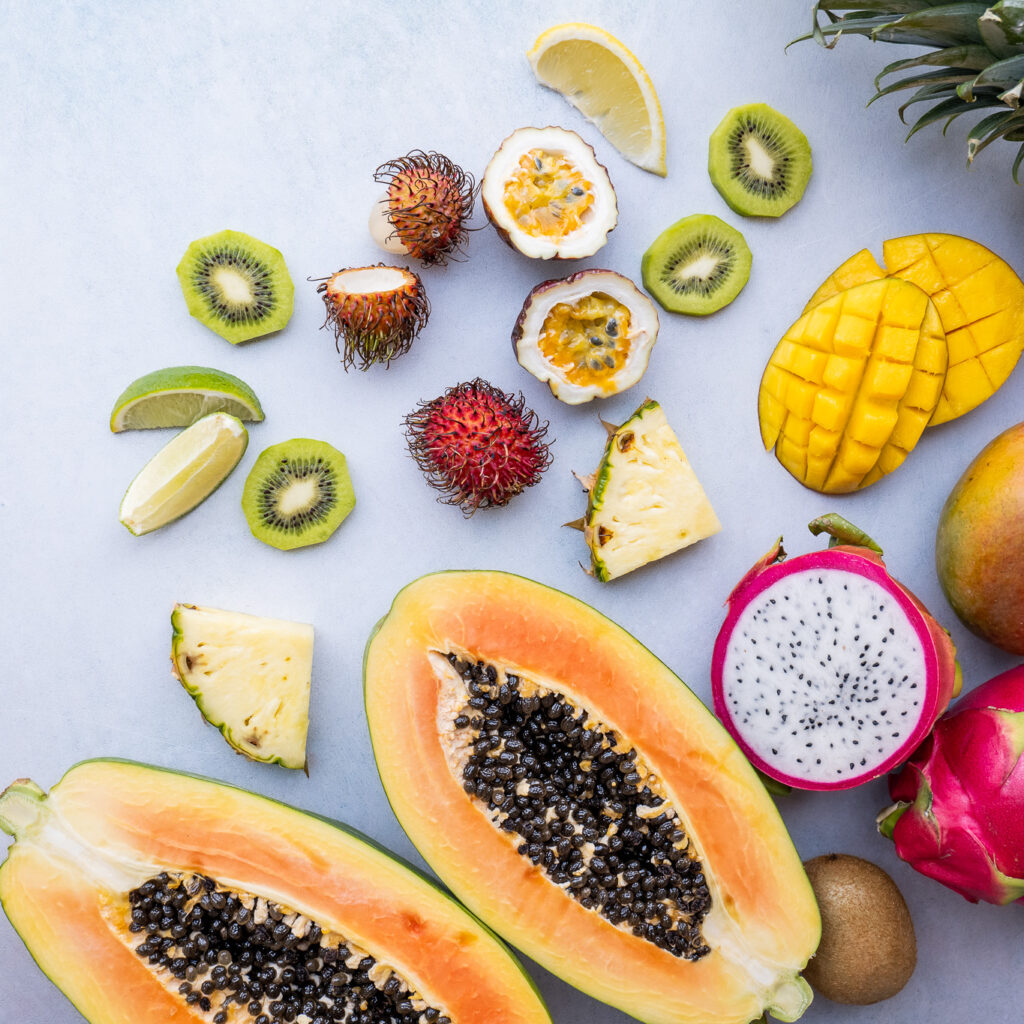
a. Highlight Certifications
Make sure to mention:
- Organic certification
- GlobalG.A.P. compliance
- Fair Trade labels
These boost trust and allow pricing flexibility.
b. Invest in Packaging
Attractive, biodegradable, shock-resistant packaging is essential for online fruit sales — especially for premium or gift-quality fruits.
c. Use Local Fulfillment Partners
Partner with local e-commerce warehouses for faster delivery and cold storage — critical for preserving fruit quality.
d. Engage in Online Promotions
Consider:
- Social media ads showcasing tropical fruit recipes
- Collaborating with influencers or chefs
- Offering seasonal subscription boxes
e. Analyze Consumer Trends
Leverage tools like Google Trends, Amazon search rankings, and social media polls to determine which tropical fruits are trending in specific markets.
6. Challenges in Online Tropical Fruit Trade
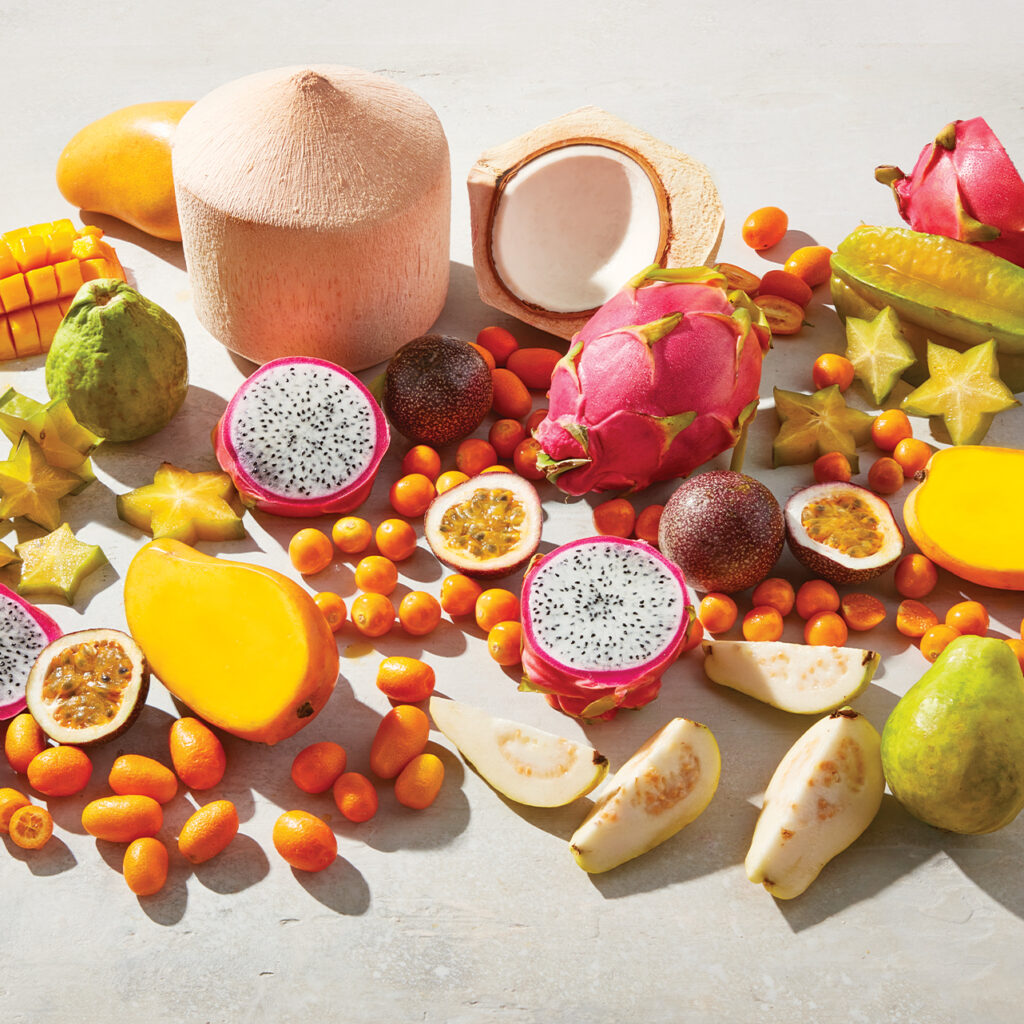
Despite its promise, the online sale of tropical fruits faces key hurdles:
- Perishability: Ensuring freshness across long distances can be difficult.
- Customs & Import Regulations: Each country has unique phytosanitary rules.
- High Competition: Especially in mango and avocado categories.
- Lack of Digital Skills: Many small-scale farmers need training in e-commerce platforms and digital marketing.
Governments and NGOs are beginning to bridge this gap through digital literacy programs and export-focused training sessions.
7. What’s Next? The Future of Online Tropical Fruit Markets
Looking ahead, the following trends are expected to shape the future:
- AI in Inventory and Ripeness Tracking: Predictive shipping based on ripeness levels.
- Blockchain for Traceability: Ensuring transparency and reducing food fraud.
- Drone Deliveries: Already piloted in parts of China and the UAE.
- Hyperlocal Exports: From tropical zones to nearby cold regions — example: South India to Maldives or Sri Lanka.
The tropical fruit industry is poised for a major transformation through technology, sustainability, and direct-to-consumer selling.
Conclusion
Tropical fruits are no longer just market staples — they are now e-commerce stars. From mangoes sold on Amazon in the U.S. to durians auctioned live in China, the global appetite for exotic, flavorful, and nutritious produce continues to rise. Exporters and growers who leverage the right platforms, maintain quality, and adapt to consumer preferences stand to reap significant rewards.
For students, exporters, or agri-tech startups interested in the future of fresh produce trade, understanding the top online markets for tropical fruits is no longer optional — it’s essential.
